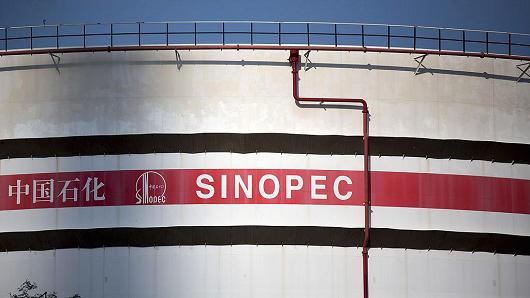Woks Away: China's Plan to Make Jet Fuel from Restaurant Leftovers
 |
| Jerome Favre | Bloomberg | Getty Images |
Plans to mass-produce jet fuel from restaurants' waste kitchen oil will come a step closer in China next year when a major state-owned refiner begins construction of a full-scale production plant.
Zhenhai Refining and Chemical, a Sinopec subsidiary based in Ningbo, Zhejiang province, said the plant would convert 100,000 tonnes of leftover kitchen oil into 30,000 tonnes of aviation-grade biofuel a year.
The fuel would be sold to airlines operating long-haul international flights, especially to countries that charged high emissions taxes, it said.
Although biofuel does not add extra carbon dioxide to the atmosphere, since it originally comes from plants or animals that are part of the biological cycle, some researchers have argued it is not suitable for long-term storage and might constrict or even block fuel flow in pipelines because of its tendency to form a gel at low temperatures.
In another blow to its aviation prospects, the US Air Force reported last year that jet fighters using biofuel had been infested by thriving colonies of bacterium that threatened the safety of mechanical and electronic components.
But Zhenhai Refining spokesman Huang Zhongwen told the South China Morning Post passengers need not worry because the new fuel would be "absolutely safe" for planes, adding that it would also not smell like a kitchen.
Sinopec, China's largest oil company, started the project in 2011 as a countermeasure to a carbon tariff on civil aviation proposed by the European Union. The first sample product was synthesised in a Sinopec laboratory the following year but the biofuel was not used in a commercial flight until March 2015, when a Hainan Airlines Boeing 737 used a 50-50 mix of conventional jet fuel and biofuel to fly 156 passengers from Shanghai to Beijing.
"The flight was a one-off; just for show," Huang said. "The plant, however, means long-term business."
The design of the plant, to be built in Ningbo's Zhenhai district, was near completion and other preparations were proceeding smoothly and on schedule.
"We have confidence about breaking ground in 2018 ... output will meet the annual demand of certain long-distance flights," Huang said. He declined to provide the investment cost or what the biofuel would sell for.
According to Boeing, a major maker of passenger jet planes, more than 1,500 commercials flights had used biofuel since 2011. These were all for demonstration purposes, however. The world's 100,000 daily flights still stick to conventional fossil fuel.
Using waste kitchen oil was a challenge, said Professor Li Xuebing, a biofuel researcher with the Chinese Academy of Sciences' Qingdao Institute of Bioenergy and Bioprocess Technology, in Shandong province.
"The barrels come in with all kinds of stuff: vegetable oil, animal fat, various proteins, salt, pepper …" he said.
But researchers had developed sophisticated technology to filter out the "junk", Li said. They heated the oil to over 350 degrees Celsius to get rid of water molecules, which might damage jet engines, and added hydrogen to extend the fuel's shelf life and combustion efficiency. That added to the cost of the final product and made it more expensive than fossil fuel.
But Li said the Sinopec's aviation biofuel had met stringent safety standards. For instance, it did not form a gel at temperatures low as minus 47 degrees Celsius, and its manufacturing process should kill off all sorts of bacteria.
"Chemically speaking, it should be almost identical to fossil fuel," he said. "Even better, in fact, on some performance benchmarks."
Sinopec might struggle to find enough raw material, however. Chinese restaurants produce more than five million tonnes of waste oil a year, according to some estimates, but most of that goes down drains and some is sold to underground workshops which recycle it and sell it back to restaurants as cheap "gutter oil".
The use of gutter oil in restaurants has become one of the biggest food safety concerns in China.
Li said he was not sure whether the refinery would be able to collect enough gutter oil for mass production.
"There is tough competition," he said. (CNBC)